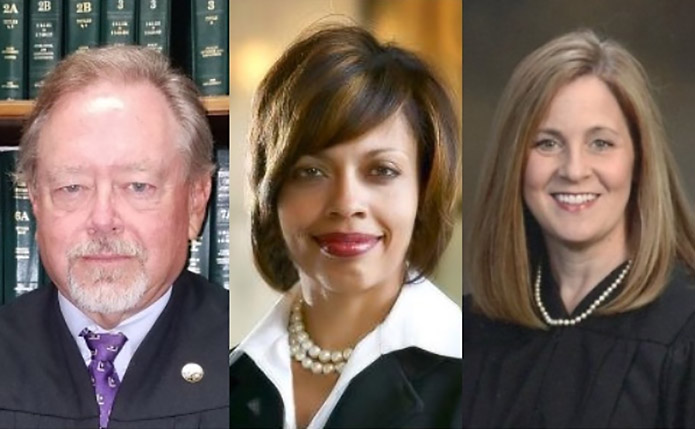 Clarksville, TN – For the last 14 years, the Thomas Clardy murder conviction has captured the attention of true crime fans across the country. In 2007, Clardy was convicted of fatally shooting a man in Madison, Tennessee, but a growing number of journalists argue that he may be innocent.
Clarksville, TN – For the last 14 years, the Thomas Clardy murder conviction has captured the attention of true crime fans across the country. In 2007, Clardy was convicted of fatally shooting a man in Madison, Tennessee, but a growing number of journalists argue that he may be innocent.
News coverage of the Clardy case peaked in 2017 when the New York Public Radio podcast The Takeaway ran an episode on him.
Clardy is still in jail, but on April 12th, the latest chapter in the case played out at an unorthodox setting – the Austin Peay State University (APSU) campus. That morning, the Tennessee Court of Criminal Appeals heard several actual cases – including the infamous Thomas Edward Clardy v. The State of Tennessee – in Austin Peay State University’s Morgan University Center.
Three judges – Jill Bartee Ayers, Robert Wedemeyer, and Camille McMullen – sat in their black robes in the front of a long conference room while attorneys argued for their clients. Behind these lawyers, a crowd of APSU criminal justice and political science majors watched the official proceedings.
“I appreciate so much Austin Peay making the effort to make this available so we can come and show what we do,” Ayers said. “We’ve been going around to a lot of different universities to let people see what we do and let the students have a chance to ask questions.”
For all the judges, Tuesday’s court session served as a homecoming. Ayers was a Montgomery County Circuit Court judge until the Tennessee General Assembly unanimously confirmed her appointment to the Court of Criminal Appeals on April 12th, 2021 – exactly one year before her visit to APSU.
In the early 1990s, McMullen was a familiar face on campus as president of the APSU Student Government Association.
“I am an Austin Peay graduate, with an undergraduate political science degree from here, and I can tell you I believe this institution prepared me,” she told the students. “If you’re wondering if you’re going to be prepared, if you made the right decision, just rest assured. I was more than prepared to succeed. I would not be here to serve the community and the state without the investment that this institution made in me.”
Wedemeyer was appointed to the Court of Criminal Appeals in 2000, but like his colleagues, he has a strong connection to the local community.
“It’s a particular honor for me to be on this panel at Austin Peay because I started practicing law in 1977 right here in Clarksville,” he said. “I became a circuit judge in 1990 right here in Clarksville and had Montgomery and Robertson counties in my jurisdiction. I was a circuit judge for 10 years in Clarksville and the most important thing is at some point here, I managed to get two of my five children through Austin Peay State University.”
‘An opportunity you just can’t get in the classroom’
The three judges heard several actual cases during the official court session. During one case, McMullen stopped one of the attorneys and asked her to translate or expand upon the obscure Latin and legal terms common to the profession. McMullen specified that she wanted the students to understand what was happening.
“I haven’t sat through (a court session) before,” Lyric Brooks, an APSU criminal justice major and pre-law minor, said. “It was different but helpful hearing things we talk about in our classes and see them actually used.”
That’s what Scott Culhane, chair of the APSU Department of Criminal Justice, was hoping for. He brought several students to the event to give them first-hand experience with state court proceedings.
“I think it’s an opportunity you just can’t get in a classroom,” he said. “I can explain it all day long to them but there’s nothing like the real thing. In my class, we talk about appeals cases, and what appeals are – it’s not a retrial, it’s not doing it all over again – but that doesn’t resonate until they come out and see that it’s not ‘Law and Order’ – ‘dun-dun.’”
In years past, Culhane has taken students to Nashville to watch appeals court sessions, but that can take all day.
“You need a big block of time for that, so this is very succinct and very easy to get exposure within an 85-minute class,” he said.



